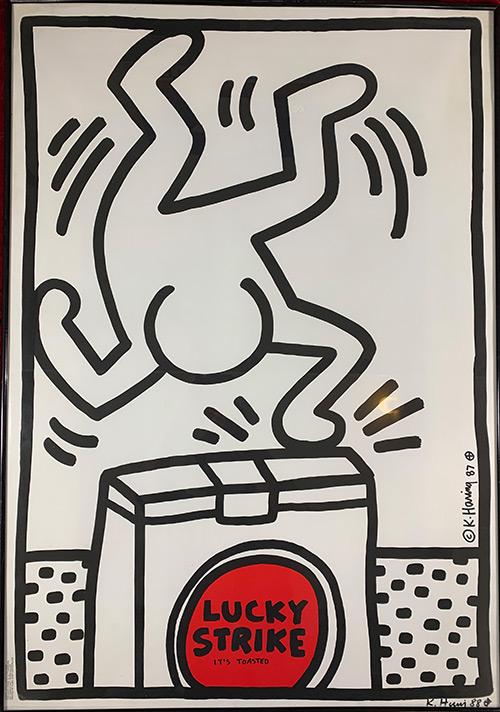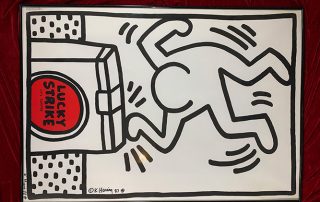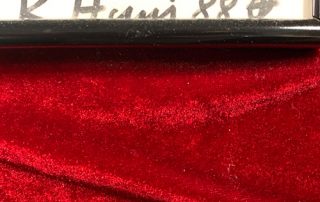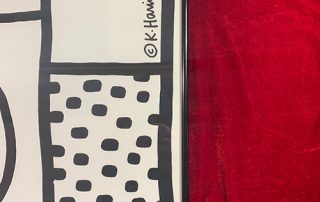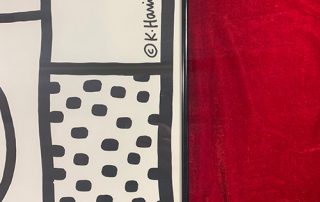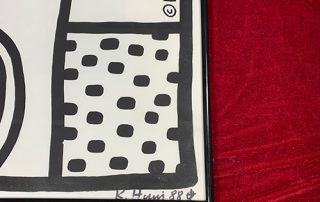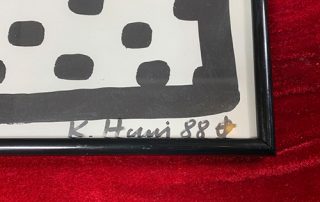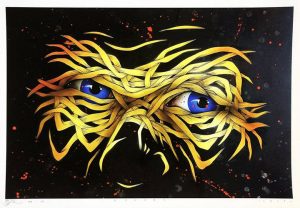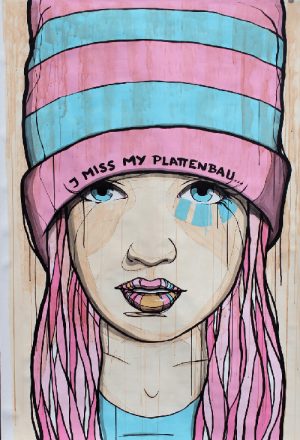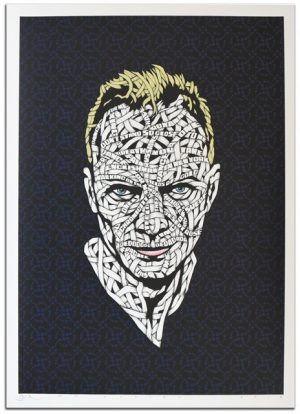5.605,60 $
1 in stock
Artist: Keith Haring
Title: Lucky Strike (White)
Year: 1987
Size: 70 cm x 99 cm (27.5 inch x 39 inch)
Medium: Original screenprint 1st edition, printed by Albin Uldry (Switzerland)
Edition: 1
Numbered: no
Signed: Handsigned and printsigned
Framed: yes
COA: yes
1 in stock
Ministry of Walls Street Art Gallery
Keith Haring – Lucky Strike (white)
The 1990s were a time of change for many social and cultural aspects worldwide. Especially in
art, many artists brought huge changes, and Keith Haring was one of them. Haring drew and painted murals in public places and was often philosophical about his attitude to art creation. He was inspired and fascinated by the feedback he would get from people around him. Although still young, he had developed a very special concept of what art should be.
His work:
Realizing that it was not his thing to become a commercial artist, Haring went to New York in 1978 to continue his education in painting. Shortly after his arrival, he accepted the School of Visual Art to study semiotics. Of course, the city offered many opportunities for artistic expression. Haring never avoided using it to show the images that existed in the back of his head. There were empty black boards everywhere, especially in the subway area. He felt as if the white chalk belonged to the surface. He fills it with quickly drawn images, creating some of his characteristic works in this way. These include The Radiant Baby, figures with televisions for heads, barking dogs and others. He was able to create up to forty subway drawings in a single day, and people often stopped and talked to Haring while he was working.
Already in the first days of his career Haring founded the art trade as something absurd. Although he had been represented by the Tony Shafrazi Gallery since 1982, it served him more as a means to raise funds for other forms of artistic expression than to market his work in the classical sense. He firmly believed that art was not something to be owned and sold as such. He believed that art should be a part of the community by taking it off its base and giving it back to people. To promote this idea, he founded the Pop Shop in New York City in 1986. It sold inexpensive items such as posters and T-shirts bearing his trademark. Proof of his social awareness is the fact that he has donated much of the money raised by selling his works to various charities and institutions.
Ministry of Walls is humbled to be able to present this work by the artist, Lucky Strike (White), as part of its collection.
DISCOVER MORE

